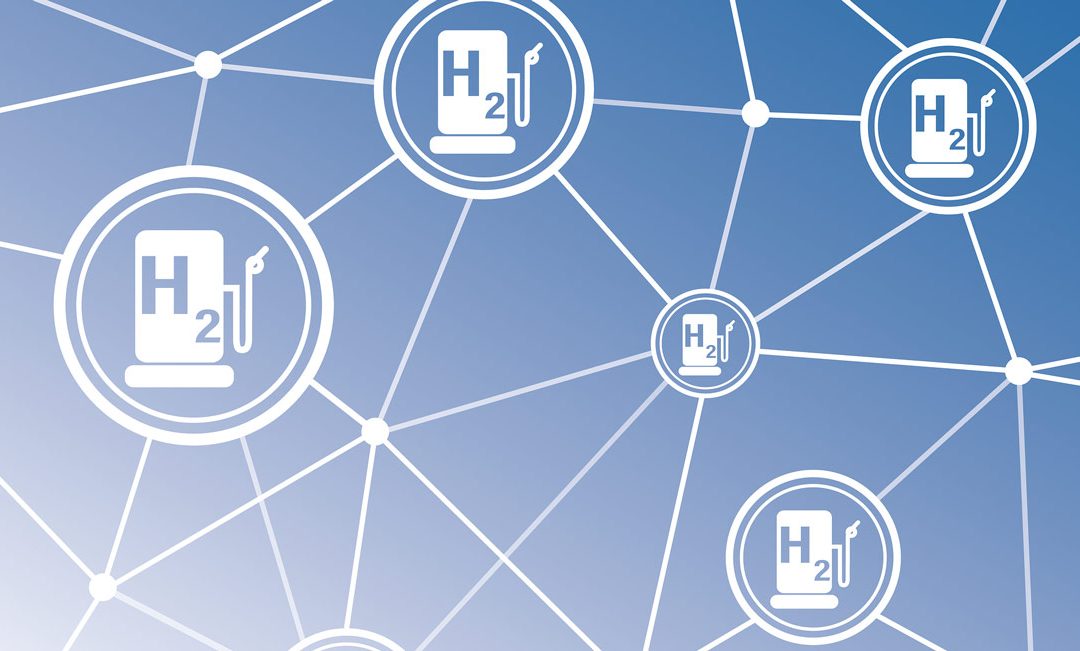On September 28, 2021, the second episode of the “Hydrogen digital” series took place, in which experts and practitioners reported on their experiences as part of the Interreg project “Hydrogen Transport Economy” (HyTrEc2) in the North Sea Region (NSR). The virtual event was presented by aconium, Cenex and the Arctic University of Norway.
Hydrogen will be one of the most important energy sources of the future and hydrogen-powered vehicles are of fundamental importance for achieving the EU’s energy and climate protection targets. In Europe, over 90% of transportation is still oil-based. Converting larger vehicles to hydrogen therefore offers very good opportunities to reduce carbon emissions in both transportation and logistics.
The main focus of hydrogen development as an alternative energy source has so far been on technological and economic factors to ensure that hydrogen can be seen as both a technologically and cost-effective energy alternative. Equally critical to the successful adoption of hydrogen, however, is the need to train professionals in the field and build skills to drive success, analyze knowledge gaps and identify opportunities for growth. Safety in the use of hydrogen will also enable positive public acceptance.
In addition to knowledge transfer, the HyTrEc2 project examined the laws and standards relating to hydrogen in the entire North Sea region in order to identify obstacles and options for widespread introduction. Among other things, it was found that the greater the quantities of hydrogen potentially involved, the greater the attention paid by the authorities and other stakeholders to the production, use and storage of hydrogen. Finally, supporting the development of a hydrogen economy in the North Sea region requires strengthening the hydrogen supply chain.
This is precisely where the webinar came in, with three presentations highlighting current and future opportunities. Madeline Langlois from aconium GmbH addressed the need to build up skills in her presentation “Hydrogen competence and skills development in the workplace”, Nick McCarthy (Cenex UK) presented important aspects of legislation and standards in the North Sea region and Mohamad Mustafa (The Arctic University of Norway) gave an insight into the hydrogen supply chain in the North Sea region. The event was moderated by Chris Ashe from aconium GmbH.
The participants included representatives from local authorities, research institutions, universities and companies with a particular interest in hydrogen as an energy source.
Future events in the HyTrEc2 webinar series are planned at four-monthly intervals until the end of 2022 and will highlight the results of the HyTrEc2 project to contribute to a comprehensive understanding of the current situation around hydrogen and the future of the hydrogen economy in the North Sea region.
About HyTrEc2
The main objective of the Interreg North Sea Region (NSR) project HyTrEc2 is to create positive conditions for the development of a market for fuel cell vehicles (FCEV) in the North Sea Region, so that the region can develop into a competence region for fuel cells and range extenders. To achieve this, eight organizations from the North Sea region with a wide range of experience are working together to develop a strategy and local initiatives. The aim is to help promote the use of FCEVs in the North Sea region and reduce the costs of hydrogen vehicles.
aconium supports the HyTrEc2 partnership in project management and the development of marketing measures. This includes the lead coordination of the development of the hydrogen filling station app H2live.

